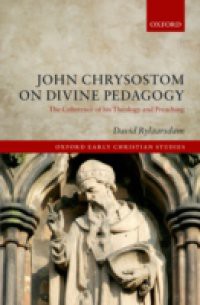Michael V. Wedin presents a new interpretation of Parmenides Way of Truth: the most important philosophical treatise before the work of Plato and Aristotle. The Way of Truth contains the first extended philosophical argument in the western tradition--an argument which decrees that there can be no motion, change, growth, coming to be, or destruction; and indeed that there can be only one thing. These severe metaphysical theses are established by aseries of deductions and these deductions in turn rest on an even more fundamental claim, namely, the claim that it is impossible that there be something that is not. This claim is itself established by a deduction that Wedin calls the Governing Deduction. Wedin offers a rigorous reconstruction of the GoverningDeduction and shows how it is used in the arguments that establish Parmenides severe metaphysical theses (what Wedin calls the Corollaries of the Governing Deduction). He also provides successful answers to most commentators who find Parmenides arguments to be shot through with logical fallacies. Finally, Wedin turns to what is currently the fashionable reading of Parmenides, according to which he falls squarely in the tradition of the Ionian natural philosophers. He argues that thearguments for the Ionian Interpretation fail badly. Thus, we must simply determine where Parmenides argument runs, and here there is no substitute for rigorous logical reconstruction. On this count, as our reconstructions make clear, the argument of the Way of Truth leads to a Parmenides who is indeed asevere arbiter of philosophical discourse and who brings to a precipitous halt the entire enterprise of natural explanation in the Ionian tradition.


















